Ready to Run it Your Way? Empowering Equipment Owners Like Never Before
January 22, 2026
Read More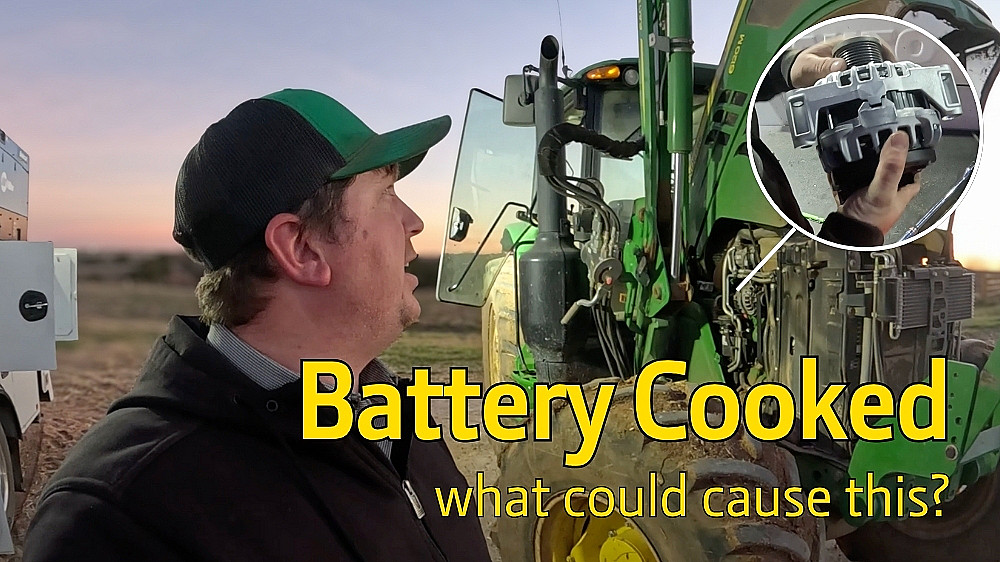
We were called out to a John Deere tractor that wouldn’t start. The operator had tried turning the key—everything lit up like it should—but the engine wouldn’t turn over. They tried jumping the battery, but still had no luck. It took a jump pack and jumper cables hooked up to a truck to finally get it to fire up. At that point, it was clear the battery wasn’t just weak—it was completely dead.
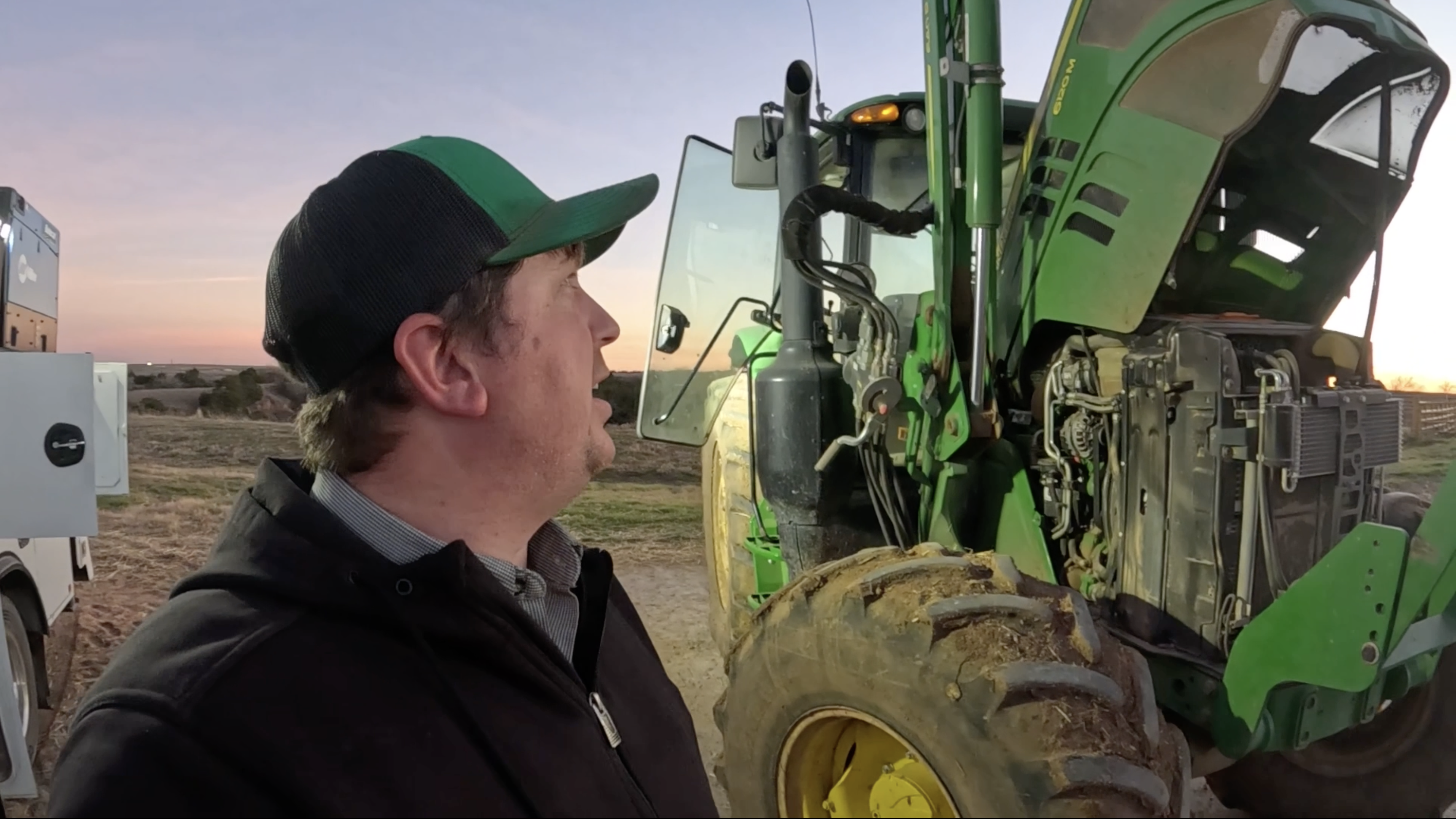
After getting the tractor started, we checked the alternator output voltage. The reading was way too high. Between that and the fact that this was an older unit—probably a 2016 or 2017—we determined that the alternator had likely overcharged and cooked the battery. This wasn’t just a matter of age; the battery had probably shorted out due to excessive voltage from the alternator.
We replaced the battery that same morning. The battery on the 6120M is mounted behind the steps, so getting to it is straightforward.
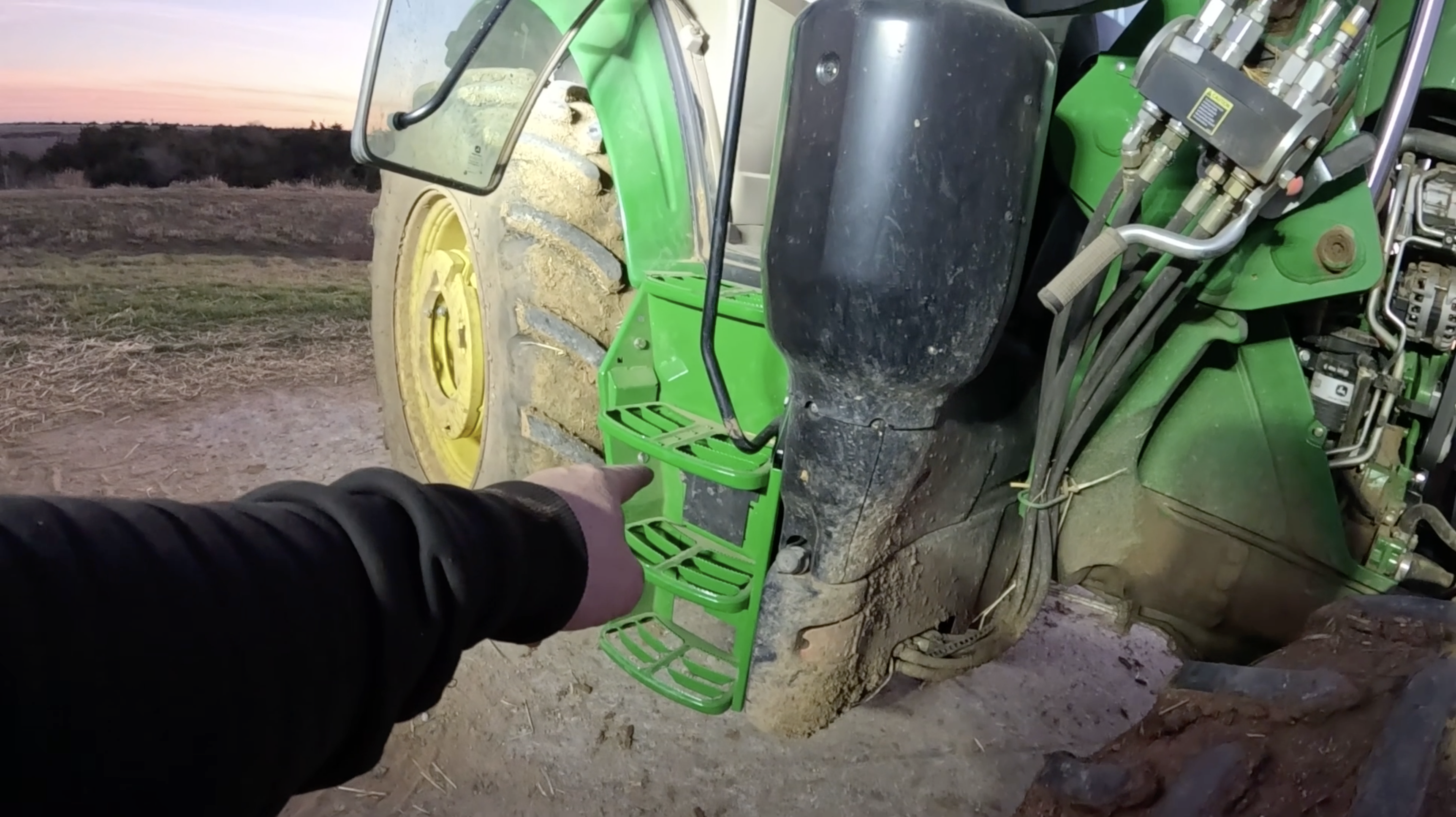
First step: always disconnect the ground cable on the battery to prevent sparking.
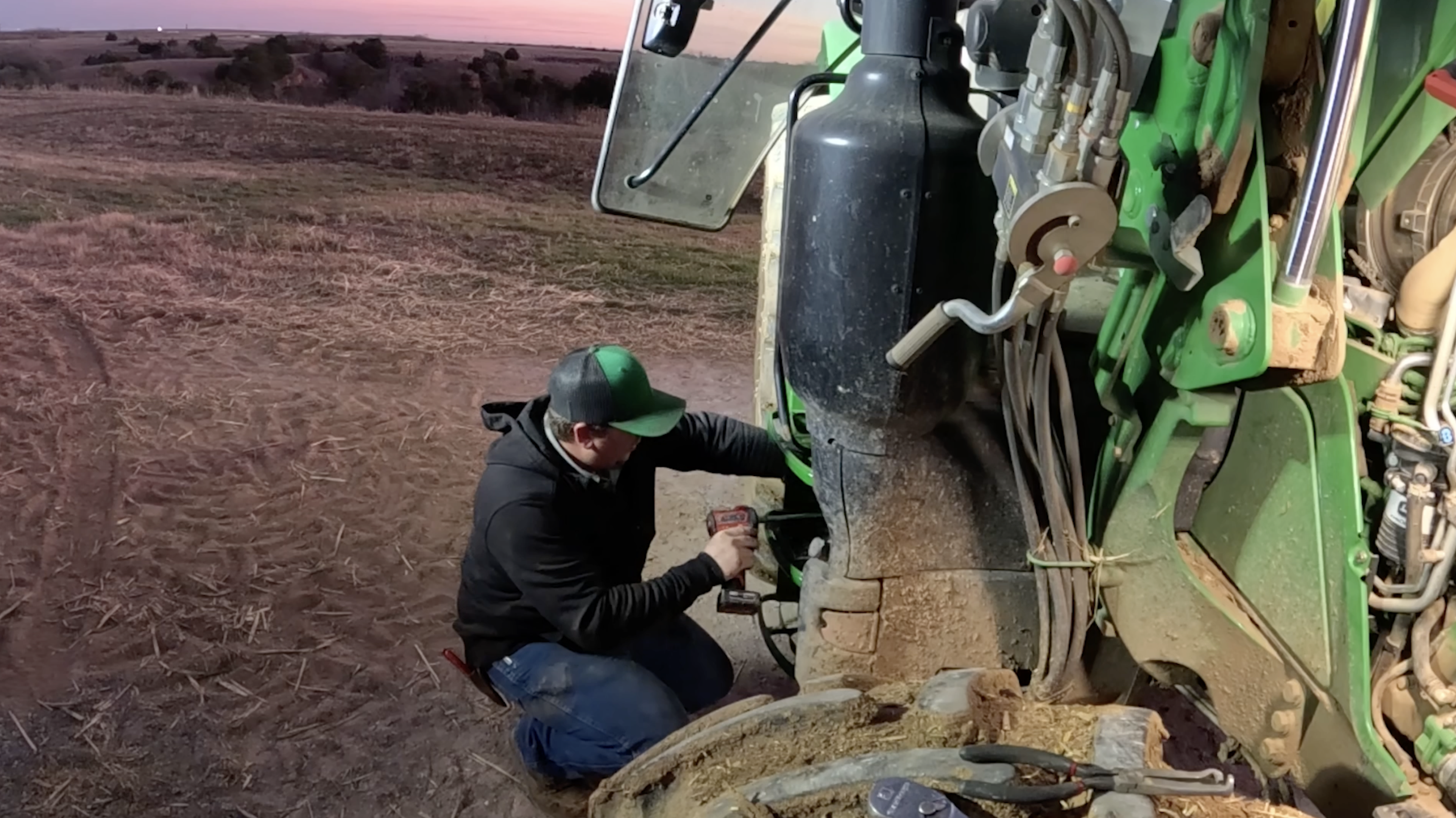
Then we pulled the belt and removed the old alternator.
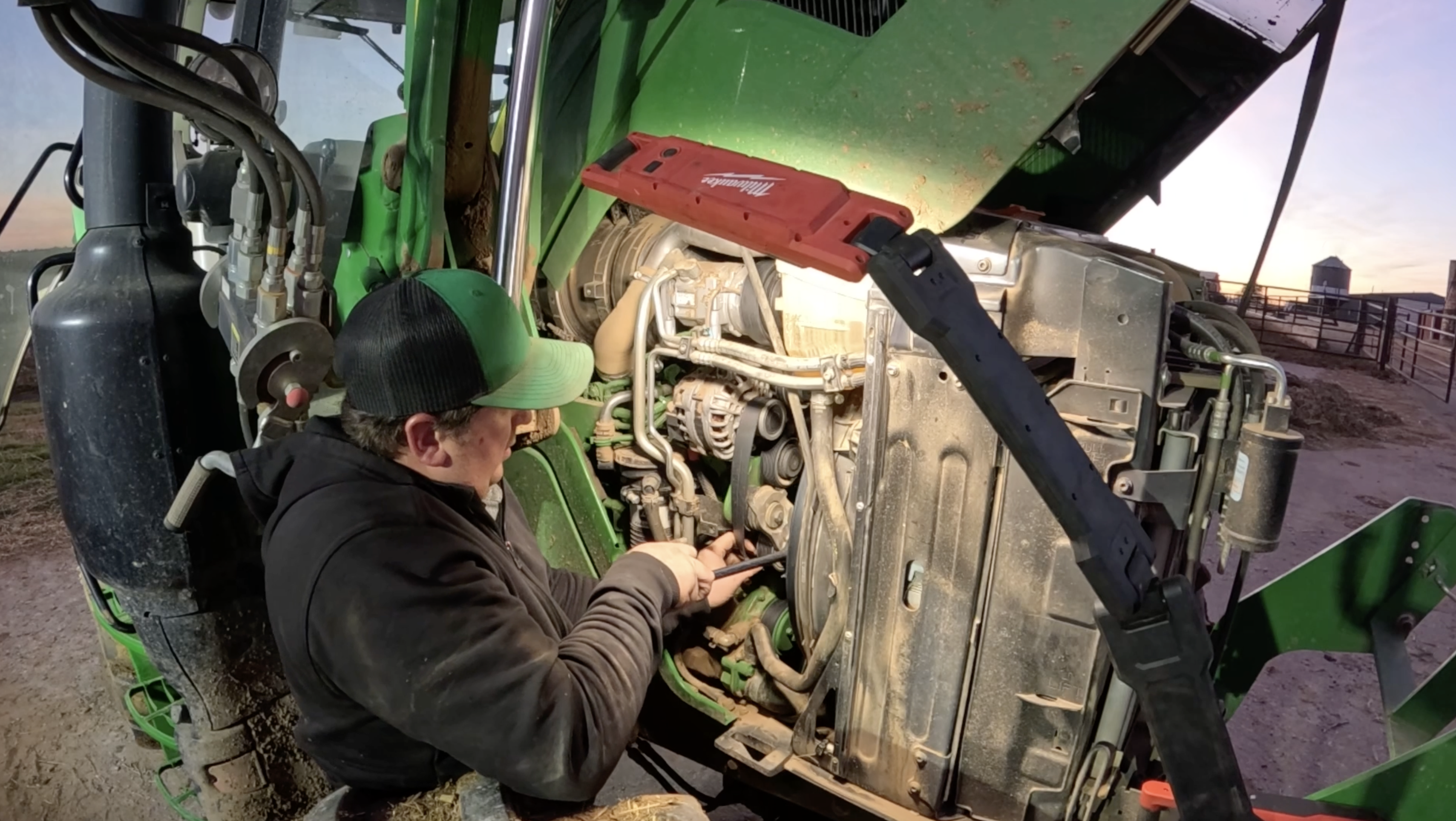
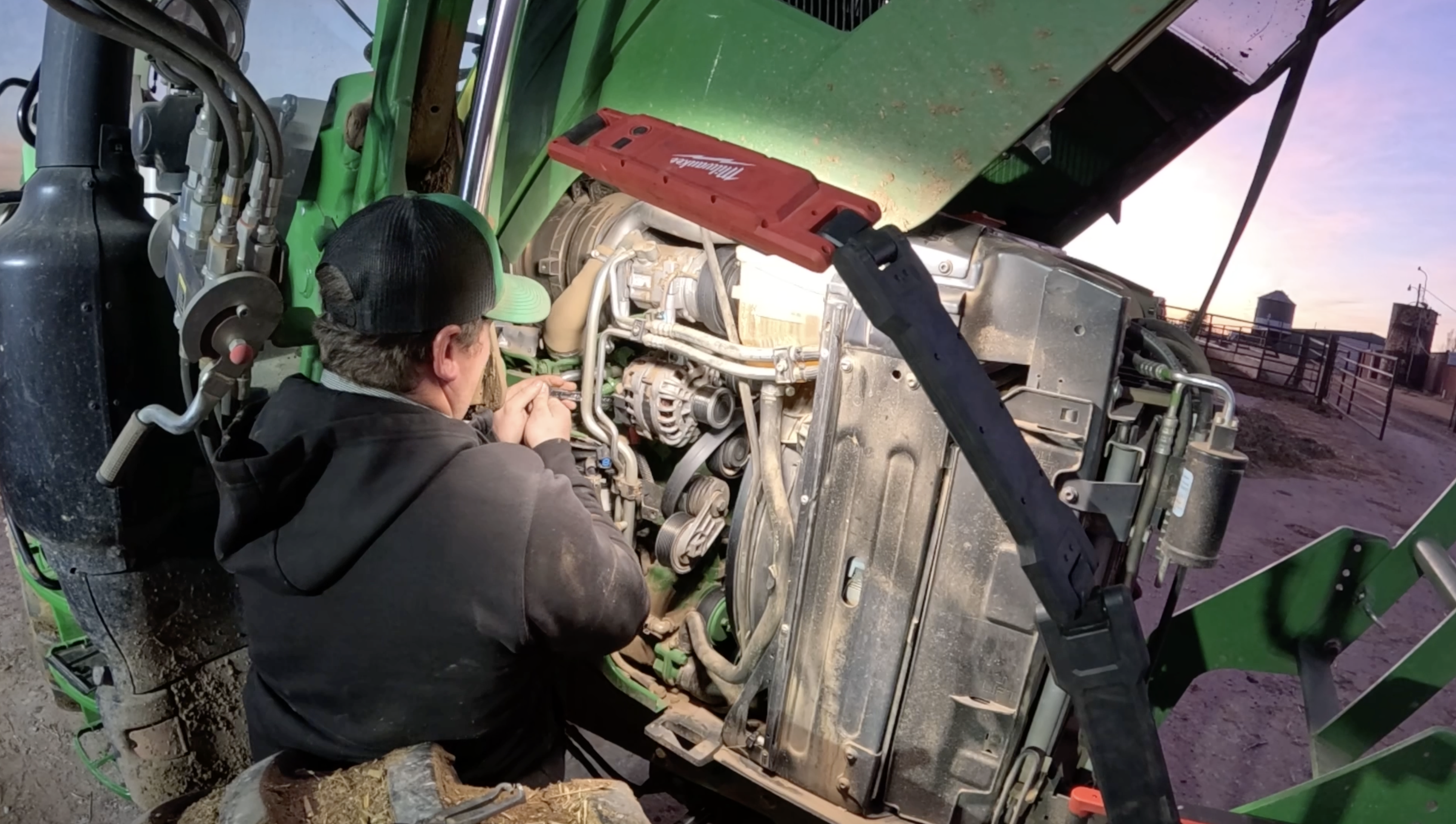
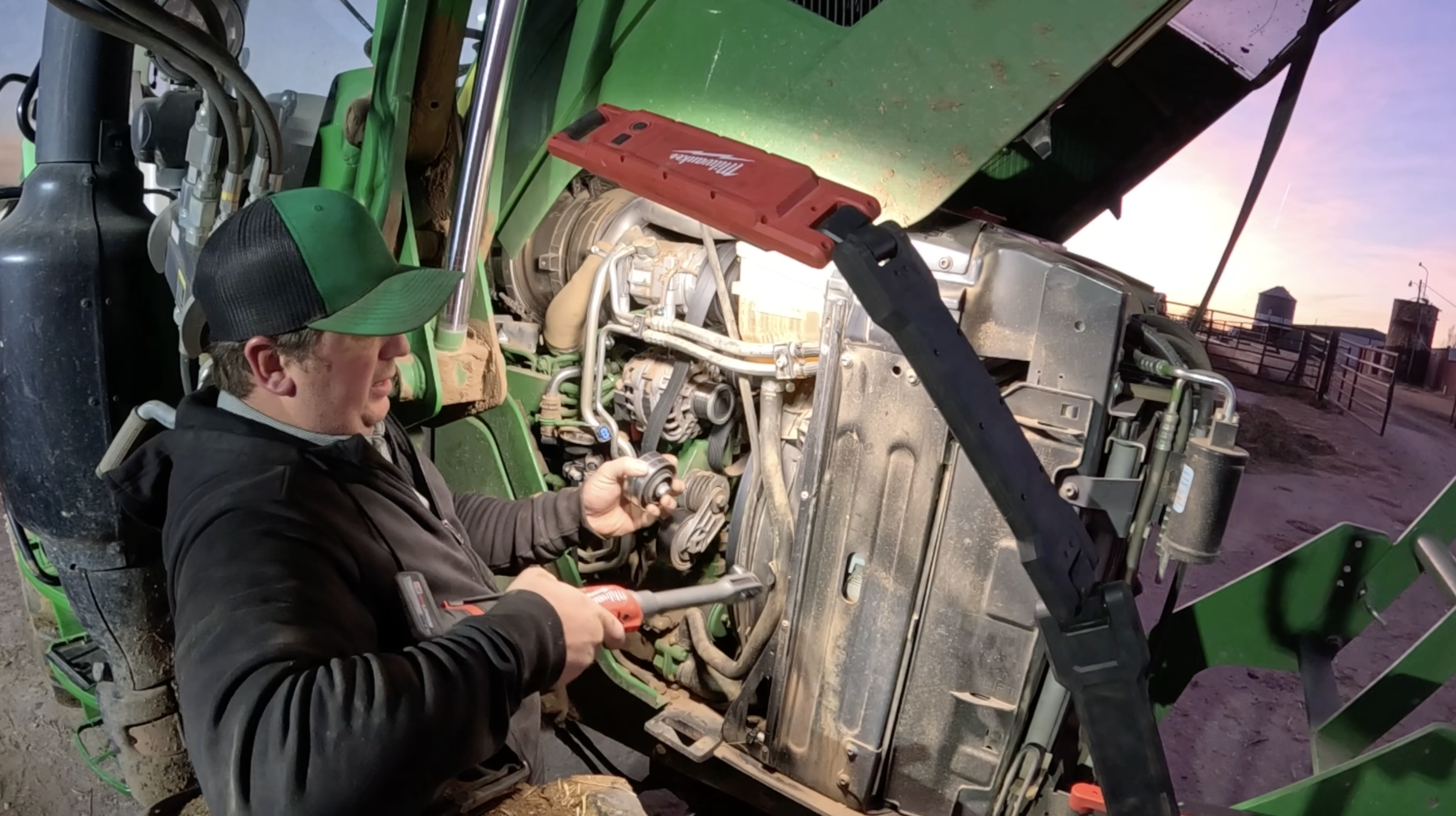
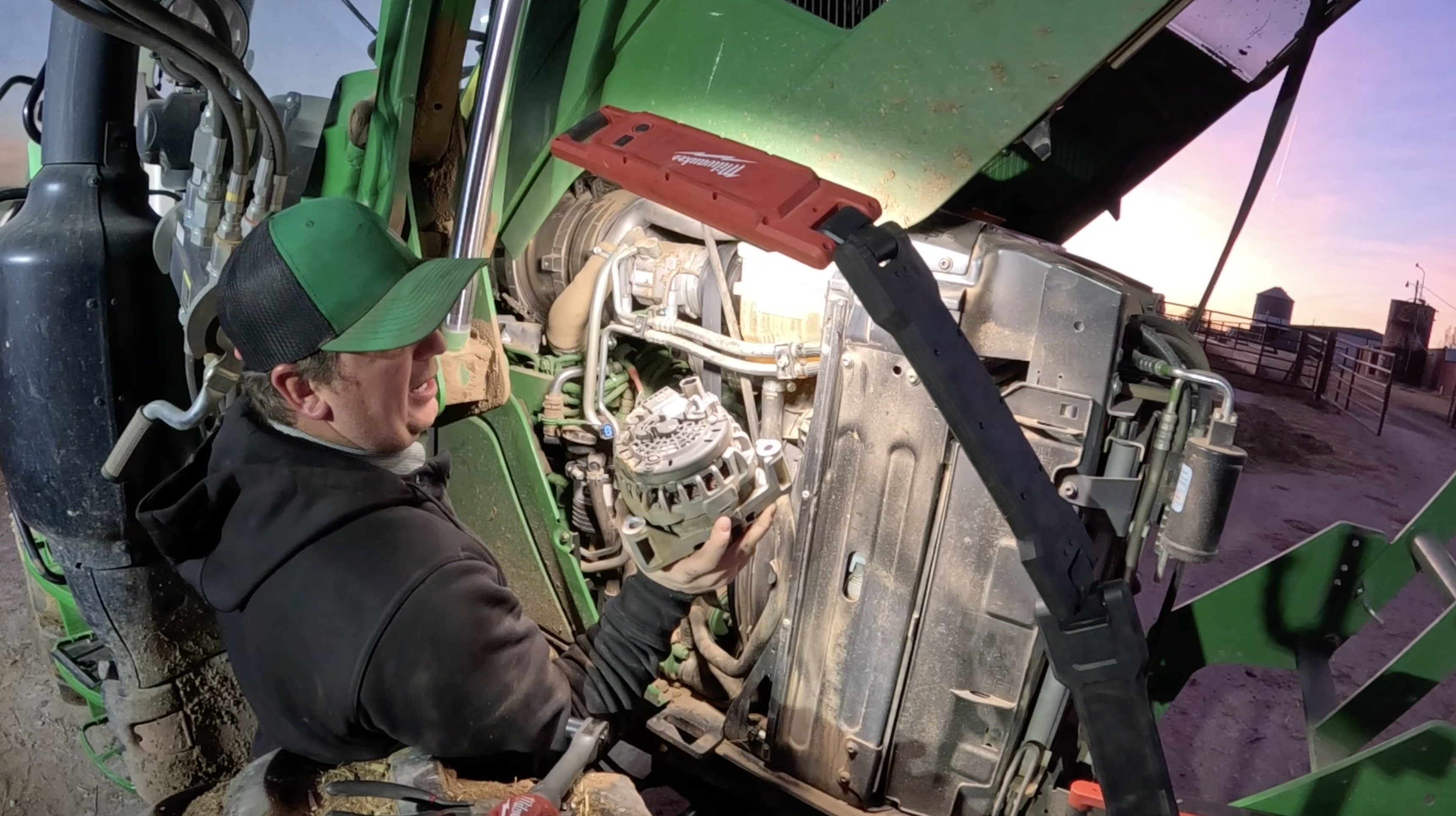
Once the old alternator was removed, we installed the new one, reconnected everything, and fired the tractor up. The voltage checked out perfect—right in spec—and everything was back in working order.
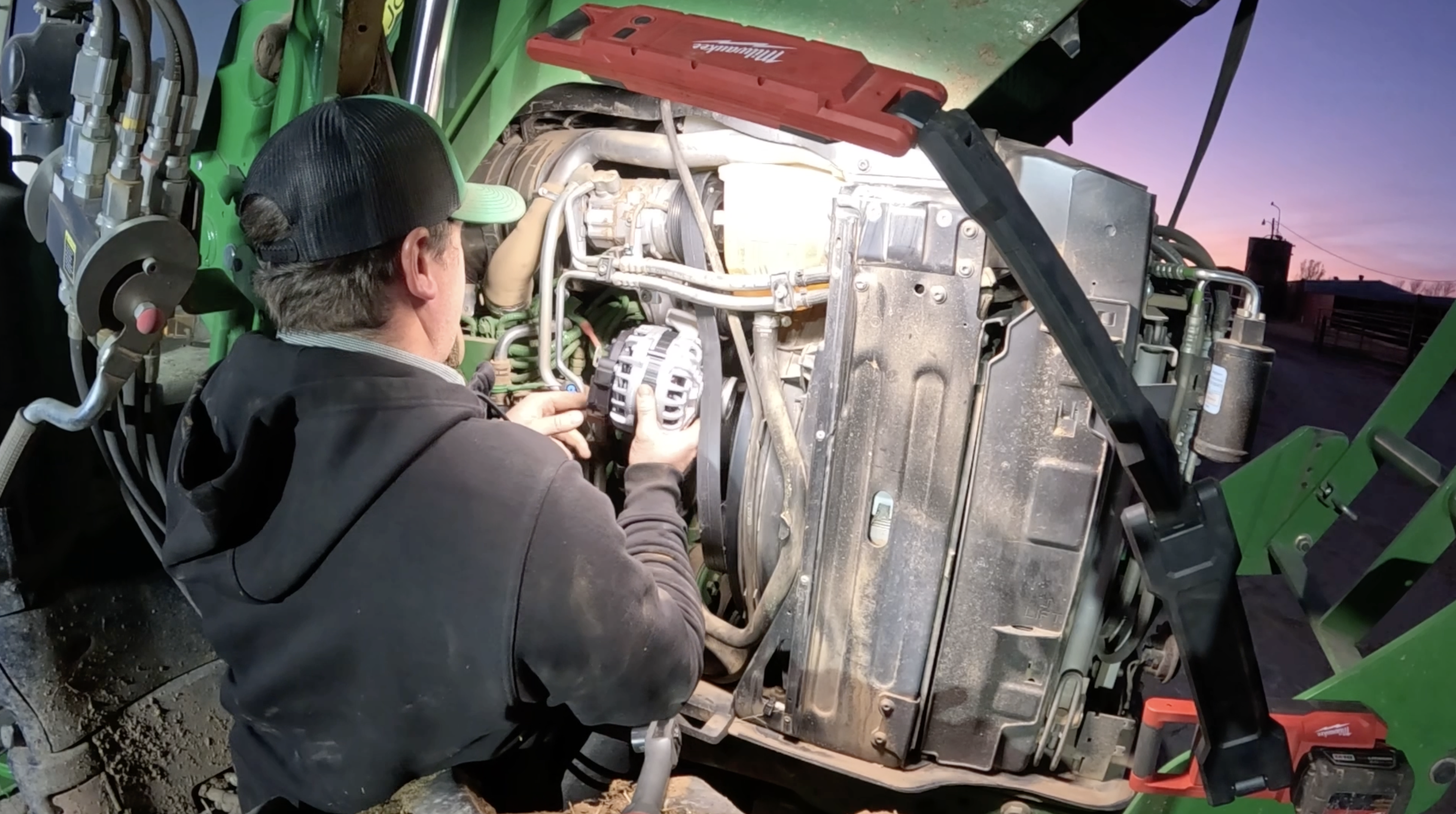
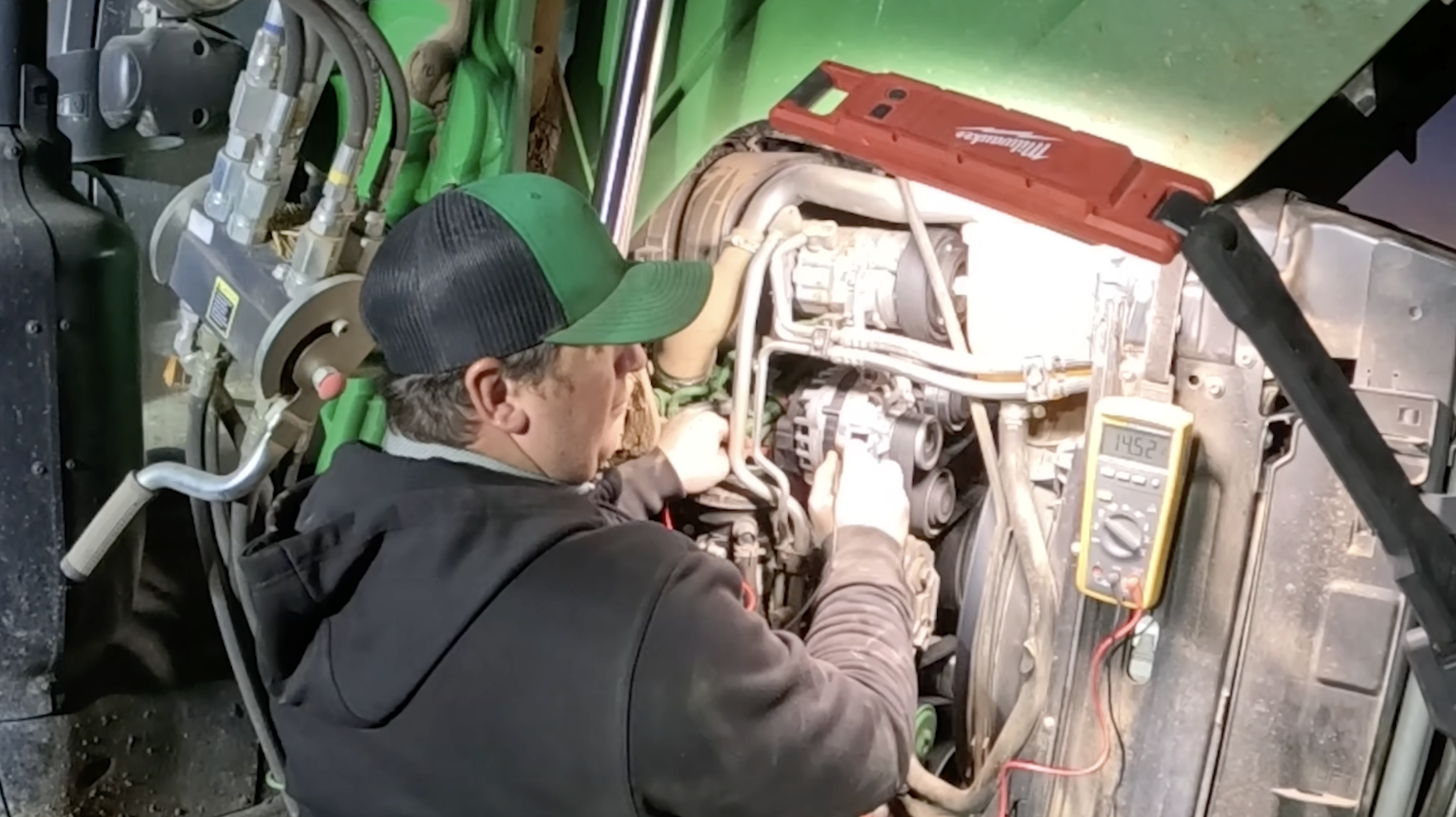
If your John Deere tractor won’t start and you suspect it’s a battery issue, don’t stop at just replacing the battery. A faulty alternator can ruin a brand-new battery in no time. Always check the charging system to be sure you’re not just treating the symptom instead of the cause.
 Compare {{items.length}}/4
Compare {{items.length}}/4